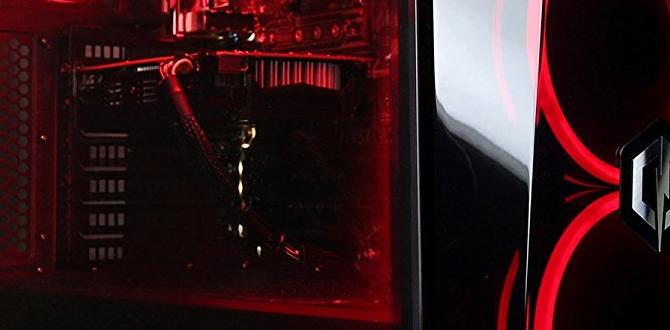As a programmer, the choice of the right hardware is crucial for optimal performance. Many programmers often wonder whether a gaming PC can be a suitable option for their coding needs. Let’s delve into the benefits, drawbacks, and considerations of using a gaming PC for programming tasks.
Performance Benefits
High Processing Power for Compiling Code
A gaming PC typically comes equipped with a high-performance processor, which can significantly speed up the code compilation process. This means faster turnaround times when working on complex projects.
Faster Multitasking Capabilities
The powerful hardware in a gaming PC allows for seamless multitasking. As a programmer, you may need to run multiple development tools simultaneously, and a gaming PC can handle this with ease.
Graphics and Display
High-Quality Visuals for Design Work
Programmers engaged in design tasks or working with graphic-intensive applications can benefit from the superior visual quality that gaming PCs offer. Crisp displays and vibrant colors enhance the overall user experience.
Better Display Options for Coding Environments
A gaming PC often features high-resolution monitors that provide ample screen real estate for coding. This can make it easier to view multiple lines of code at once, leading to increased productivity.
Customizability
Ability to Upgrade Hardware for Future Projects
One of the key advantages of a gaming PC is its customizable nature. You can easily upgrade components such as the GPU, RAM, or storage to meet the evolving demands of your programming projects.
Potential Drawbacks
Higher Cost Compared to Standard PCs
It’s important to note that gaming PCs tend to come with a higher price tag due to their advanced hardware specifications. This can be a deterrent for programmers operating on a tight budget.
Specific Gaming Features May Not Be Relevant
While gaming PCs excel in handling graphics-intensive tasks, some of the features designed specifically for gaming may not be necessary for programming work. Investing in such features may not provide significant benefits.
Overall Considerations
Evaluate Individual Programming Needs
Before opting for a gaming PC, assess your specific programming requirements. Consider factors such as the type of projects you work on, software tools you use, and the level of performance needed.
Assess Budget and Long-Term Requirements
Take into account your budget constraints and long-term plans. While a gaming PC offers impressive performance, ensure that the investment aligns with your financial capacity and future project needs.
Conclusion
Using a gaming PC for programming can provide enhanced performance and visual capabilities, but it’s essential to balance the benefits with the potential drawbacks. Evaluate your programming needs, consider the costs, and make an informed decision based on your individual requirements.
FAQs
1. Can I use a gaming PC for programming tasks?
Yes, a gaming PC can be used for programming tasks due to its high processing power and multitasking capabilities.
2. What should I consider before choosing a gaming PC for programming?
Before choosing a gaming PC for programming, consider your specific programming needs, budget constraints, and long-term requirements.
3. Will a gaming PC offer better performance for compiling code?
Yes, a gaming PC’s high processing power can significantly improve the performance of compiling code, leading to faster results.
4. Are gaming PCs worth the cost for programmers?
While gaming PCs may come at a higher cost, the enhanced performance and customizability they offer can make them a worthwhile investment for programmers with demanding requirements.
5. Do I need a gaming PC if I’m not involved in graphics-intensive programming tasks?
If your programming tasks do not involve heavy graphics usage, you may explore other options that align better with your specific needs and budget.
